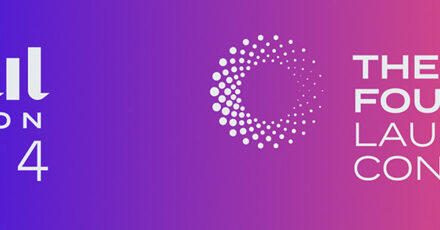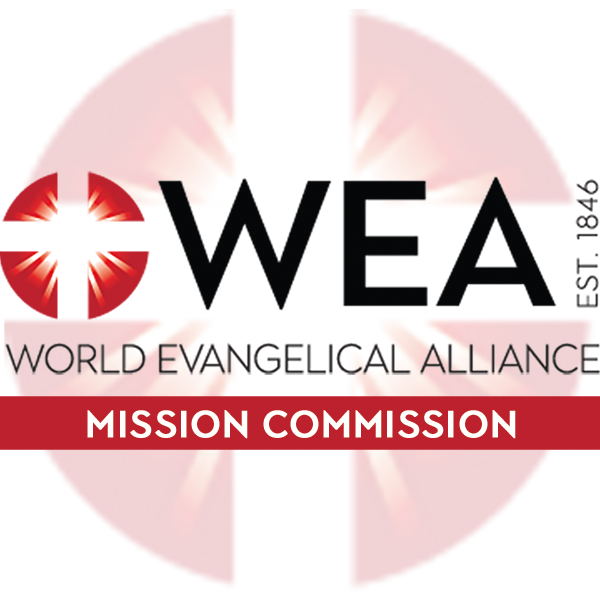REIMAGINING MISSIONS: HONOURING DATA IN MISSIONS
[30 Minute Read]
Dear fellow participants in God’s mission,
Grace and peace to you in the name of the Lord Jesus Christ.
Introductory comments from the MC…
More than thirty years have passed since the term “managerial missiology” was introduced to the vocabulary of global missions. At the turn of the century, the concept was embraced and explored by the Mission Commission as we countered what we considered to be an unbalanced emphasis on human controls to achieve the Matthew 24:14 vision in obedience to Jesus’ Matthew 28:18-20 commission within a certain time constraint. A popular reading of these gospel texts promotes the former verse as a task for us to achieve based on the authority given in the latter passage. However, Matthew 24:14 is more accurately exegeted as a promise for God to fulfill, with us obediently participating as we follow the leading of the Holy Spirit in making disciples. Good statistical and data analysis was unfairly associated in the push back against task-orientated missions strategies. But, as a wise person once said, “God cannot lead you where to go with information you do not know” (anon.), and with this essay we aim to affirm the need for well researched missions information. It is well beyond time to address the denigration of missions research, statistics, data and other information that has evolved in some missions circles. We desperately need robust and well presented data to guide us as we ‘reimagine’ missions for the new era ahead. And, importantly, we need to steward that information with upmost integrity.
1. A Search For Support
Hello everyone, I am Chris Maynard, founder-member of the Community for Mission Information Workers (CMIW) and Mission Commission ‘Synergist’ for Mission Information. I work with data for missions. God sent me into this area in 2005 and it has been a privilege to serve my Lord Jesus in this way.
I often found myself serving specific decision-makers in missions who wanted to improve their decisions with reference to data. They knew that there were relevant facts that they did not have, and they would ask me to use data help find them out. So it happened that all the missions leaders that I served valued data and respected the work that I did. But I not only serve decision-makers. I also serve researchers and data people who support them. And, the more I do this, the more I take a wider view of what we are doing with information in missions, especially information that can be described as data. As I do so, I have encountered some missions people using strange words to describe what I do, words that I feel denigrate the very work that I have been sent to do.
Let me share one instance in detail. I have developed, with some colleagues, an outline for a book about data in the service of mission. I sent it to a respected missions thinker who had expressed an interest in what we were doing, and he soon sent me a short email back. He began, “I think my main comment is that a project and book like this needs significant mission theology input.” That was a great start and just what I was hoping for! That was one reason why I sent it to him—to get sound input. He went on, “I would encourage reflection on our theology of research, data gathering and expectations for impact.” That sounded good too. I am frequently reflecting on the theology of what we do with research, data and information, and I look for outside input. I asked about the significance of “our” in that sentence. “Do you have something that I can already access? That would be wonderful.” He then replied, “I confess I do not have much ready material to point you to that can be of assistance with what you are doing.” So, his encouragement would have been good, if he had something concrete for me to reflect on. With this clarification, it just became frustrating. However, it was my correspondent’s next comments that moved me beyond frustration to anger.
He went on, “If not [i.e. if you don’t reflect on the theology that I cannot point you to] this [proposed book about data] could easily slip into a way of reinforcing an understanding of mission as task with all the problems associated with ‘managerial missiology’. I think that would be a missed opportunity to shift the way we understand our collaboration with what God is doing from enlightenment assumptions to a more Biblical understanding of God and his work in the world. The other comment I would have is that your definition of mission (finding faith in Jesus) is too limiting for me and risks reinforcing reductionist views of mission that have plagued us for so long.” [1]
I am hearing that those of us who collect and use data to inform mission decisions are locked into enlightenment, non-biblical thinking and are necessarily (if unwittingly) binding the global church into unhealthy patterns of neo-colonialism.
2. An Offence Against Data
My correspondent presented me with an impossible problem! In a few words he has outlined a vast and dreadful chasm into which I could easily slip, with no guide-ropes by which I could avoid it. This slippery chasm is can be identified by the following phrases: “understanding of mission as task”, “managerial missiology”, “enlightenment assumptions” (which are implied to be not necessarily biblical), and “reductionist views”.
This is not the first time that I have encountered these words and phrases. When this perspective is presented, often the words “Western”, “colonial”, “simplistic”, and “reductionistic” are also used in a derogatory way. The way I understand it, it seems like they think that those of us who collect and use data to inform mission decisions are locked into enlightenment, non-biblical thinking and are necessarily (if unwittingly) binding the global church into unhealthy patterns of neo-colonialism.
We are given no way out. Most of us global data people are still Western—check. Any application of data is a simplification of the real world, therefore our defence against the words “simplistic” or “reductionist” is weak—check. Data was used by colonists—check. There is no theology of numbers available to us (Western or non-Western) therefore “non-biblical” is hard to refute—check.
How would we counter the belief that the missions model today is still “from the West to the Rest” without data to prove that the Majority World now sends the majority of missionaries?
3. How Do We Know?
The basis of all knowledge is data. Every culture everywhere gathers data and uses it to form opinions about their reality. It is central to the human condition. Moreover we need data in missions. Not just any data, but well researched and verifiable data. Data helps us understand major aspects of our world. Without good data, missions would be guided by subjective opinion and conducted in ignorance of objective reality. The ways that data can be misinterpreted or misused can make it dangerous, but it is more dangerous if we rely on inadequate or obsolete data, filtered through our cultural biases, based on anecdotes, or through what our educators learned from their teachers fifty years ago.
Imagine if evangelicals in Sub-Saharan Africa did not know that they are now more numerous than those anywhere else. Good data subverts that danger. When a European says to me, “I was really disappointed that there are now only a couple of Europeans on the WEA governing body”, statistical data helps me show her why such a situation is entirely reasonable because of the smaller proportion of European evangelicals compared to those in the rest of the world. How would we counter the belief that the missions model today is still “from the West to the Rest” without data to prove that the Majority World now sends the majority of missionaries? Imagine if the debate about the reality of millions of believers in “disciple making movements” was based on hearsay or on one or two examples, without knowing what is really going on worldwide. Without robust data, we would be at an irreconcilable impasse.
Without good data we would not realise that while most evangelicals are outside of the USA, most evangelical income and financial resource for missions is still within that country. Without good data we would neglect millions of marginalised people—whether marginalised by cultural differences, religious difference, injustice, or poverty. We could be walking by on the other side of the road, ignoring their plight, without even realising it. The global Church may have broken out of “the West”, but the data shows that most Christians (non-Western as well as Western) still live in places where there are not many non-Christians! [2] So, most of us are on “the other side of the road” from most people without the gospel to start with. Whether we are in South Carolina, Brazil, Kenya or Western Samoa we can become very complacent and caught up with our own “Christian” problems, forgetting that millions of people still do not have access to the gospel. We need data to serve missions, to motivate the global church, to carry out our duty to make disciples of ALL nations.
4. Does Data Reduce or Illuminate?
Some of the antagonism toward data stems from its perceived role in what has been called “managerial missiology”, a “linear management-by-objectives process” (Taylor, W. D. 1999. Global Missiology for the 21st Century: The Iguassu Dialogue. IVP, p110). The critique against framing missions as a task to complete and subsequent management-style control of missions initiatives began in earnest in the late 1980s, emerging after the 1989 Lausanne II Consultation in Manila. Samuel Escobar was among the more public critics. He reportedly spoke for many other Majority World theologians when he called Lausanne II a “dialogue of the deaf” (Boletín Teológico, 1989. 36) and claimed that the ethos was dominated by a distinctly American “managerial missiology” and a Eurocentric “postcolonial missiology” (postcolonial as interpreted by the West) in contrast to the “critical missiology” from the Majority World theologian/missiologists (Escobar, S. in Transformation Vol 8, Oct. 1991).
Escobar was one of the leading influencers of the Mission Commission’s 1999 Global Consultation at Iguassu Falls in Brazil. Two of his papers and one of Chris Wright’s were distributed to participants prior to the event. In his paper, “Evangelical Missiology: Peering Into The Future” (Taylor, 1999. 101-122), an amplification of his 1991 article in Transformation, he was particularly critical of “managerial missiology”. [3] Escobar popularised the term within the Mission Commission and it has passed into general usage in some missions circles. He had several useful things to say in that lengthy essay, which my fellow information workers need to hear.[4] But a complex set of interconnected issues were caught up in Escobar’s strong critique, which feels to me like an attack.
…because figures help us to see some aspects of missions more clearly, they are leaving others in the dark.
To my knowledge, the useful things that he wrote have never been properly unpacked since the Mission Commission’s Iguassu Dialogue publication. Perhaps they were never unpacked because the ‘package’ was so distasteful. For example, he wrote, “…there are some aspects of missionary work that cannot be reduced to statistics. Managerial missiology has diminished those aspects of missionary work which cannot be measured or reduced to figures. In the same way, it has given predominance to that which can be reduced to a statistical chart” (Taylor, 1999. 110). Note that in each of the three successive sentences Escobar uses the word “reduced”. One by one he attacks the use of “statistics”, then “figures”, and then “statistical charts”. He states that each of them “reduces” missionary work. His choice of words seems to put those of us who create or use statistics, figures, and charts for missions into a “reductionist” camp.
What if we take these three important statements out of their ‘packaging’? Let me attempt it here, using mostly the same words… “There are some aspects of missionary work that cannot be illuminated by statistics. Managerial missiology has diminished those aspects of missionary work which cannot be measured or understood by figures. In the same way, it has given predominance to that which can be illustrated by a statistical chart.” All that I have changed are the three occurrences of the word “reduced”. But now we have a topic that could form the basis of a true dialogue. The problem he lays out is that statistics, figures and charts highlight only those things that can be counted, and so can effectively obscure those that cannot be counted. The problem does not seem to be that numbers are “reducing” anything, but rather the opposite. In fact, I could reasonably have used a phrase like “elevated by” in place of every “reduced to”. His complaint is that precisely because figures help us to see some aspects of missions more clearly, they are leaving others in the dark. In absolute terms these other aspects are no more obscure than before, but when set against what we have discovered, what we can count, they are now given less attention. That would be a helpful topic for data people and non-data people to discuss together.
5. A Serious Responsibility
I am part of a Community of Mission Information Workers. For a decade we have wanted “to become a community that lives up to its God-given responsibilities. [5]
“encouraging the godly use of information – with integrity
“prioritizing prayer – praying ourselves and facilitating prayer through our information
“developing a clear view of what we do with information – how does God see it?
“understanding why information is important – what are its limitations?”
But what help are we getting from the missiological establishment in understanding those “God-given responsibilities”? Where is the useful theology that we can draw upon? Who can help us to develop a clear understanding?
6. A Biblical Theology of Data
The value, use, and limits of data is just one of several issues that it might be helpful for missiologists and data people to explore together. Claiming that mission information workers are trapped in an obsolete, or even unbiblical, worldview does not promote healthy dialogue. Why not instead provide some robust biblical theology and missiology to guide us, which is properly contextualised and relevant to contemporary data management, analysis, and application?
I am not a professional theologian, but I can find a few clues even in the first few sentences of the Bible. Right from the beginning, God started counting (Gen 1:5,8 etc.), evaluating things (Gen 1:4,10,12 etc.), and separating things into categories—sometimes those with a different nature (Gen 1:4), sometimes those of the same nature (Gen 1:7). God named things (Gen 1:5,8), noted or defined boundary conditions (Gen 1:5,8,etc.), and identified different kinds of things (e.g. Gen 1:21). These are all regular activities for us who work in data. By Genesis chapter 11 God has used over a hundred numbers to help to communicate deep spiritual truths about our origins. Then, in chapter 11, God gives us the first table of nations—effectively a people group list. People group lists, despite their weaknesses and the misuse to which they are sometimes put, remain a cornerstone of missions data. Then there are the various biblical censuses and surveys that are precursors to our work. It would be good to examine them to see what we can learn about what is good and bad about data and its use for our participation in God’s mission.[6]
How can we value the messages that data gives us, without diminishing “those aspects of missionary work which cannot be measured or understood by figures”.
7. Better Questions?
I don’t think that there are just two options for missions—one mechanistic, managerial and data-driven, and the other relational, and spirit-led. It helps no one to suggest that there are, and it does us no good to be so binary about missions. Missions requires nuance: both/and, not either/or.
Let me offer some questions to kick off a healthy dialogue. Any of these can stimulate useful and constructive discussion. I will try to keep my frustration out of them, but even data people can get emotional!
- What are biblical reasons for using numbers and for not using numbers?
- How can data better support relationship-oriented, post-modern, non-colonial, holistic, polycentric missions?
- How does counting people value them or reduce them to abstract objects?
- What is it about the use of data that can justify the term “colonial”? How do we avoid that?
- A human-generated data model will always be simple compared with the surpassing complexity of God’s creation, and Jesus frequently made simple statements, often giving only two options rather than shades of grey. So, when does simple become “simplistic”?
- Where in our missions does task-orientation meet relationship-orientation, or must they be considered irreconcilable? Can we use data to encourage building relationships? Does some data discourage the building of relationships?
- What problems lie with the way data is used, and what problems might be inherent in the data itself?
- Missions data has become strongly associated with goal setting, especially setting goals to “finish” something and/or to do something by a certain time. Is that wrong? Are there better goals and worse goals? Can data play a role in nudging us towards better goals?
- What is the relative value (biblically and practically) that data plays in:
Allowing us to understand what has been fruitful?
Allowing us to monitor or evaluate our progress?
Allowing us to realign our future actions guided by past fruitfulness and progress?
Driving us to prayer?
Allowing us to project into the future?
Encouraging us to set direction (for ourselves and others)?
Allowing us to set specific, realistic, and achievable goals?
And what are the risks in using it for each? - How can we value the messages that data gives us, without diminishing “those aspects of missionary work which cannot be measured or understood by figures” (my re-working of Escobar’s words above)?
- Data can give legitimacy and weight to our ministry of persuading and motivating others. What are the appropriate places for management, leadership, administration, strategy, and tactics in missions? Or is it for everyone to do what is right in their own eyes? This relates also to what we call mobilisation. In mobilisation we take it on ourselves to motivate others, and an important part of that motivation is often a presentation of data.
- Does all this mean that we should devote more resources to gathering, organising, interpreting, and publishing data, or fewer?
Furthermore, why is it that data people typically get good engagement from missions people who seem to value multiplying adherents to our faith, and almost no engagement from those seeking justice or mercy, or from those who favour a more holistic mission? I suspect that this is part of what leaves us open to charges of reductionism, but where, for example, is the missions data on widows and orphans? No one has ever asked me for any, but as I read the New Testament I wonder if it would be useful.
It will help to advance missions data if these questions are addressed. But which of these questions are the most crucial?
Father in heaven, guide our discussion towards those issues which you value most, and show us if there are even better questions to address at this time. Amen.
A Final Plea
Your brothers and sisters who work with data in missions information could do with a little more understanding and help. I do not suppose that (even with good dialogue) we will come to full agreement on answers to some of my questions, but if you do not have the time or inclination to help us wrestle with these complexities, I have but one plea left… Please do not consider or accuse all use of data in missions as being simplistic and reductionist. Give us grace to continue the work that God has sent us to do.
Thank you for prayerfully considering these words and concerns.
Pray
- For all the workers in missions information, who faithfully serve God’s mission by ensuring leaders and practicioners of missions are kept well informed about the needs, opportunities, challenges and breakthroughs in global missions.
- That the dialogue between missions information workers, missions strategists, reflective missions practicioners, and critical thinkers in missions will continue in a healthy way towards formulating a good biblical theology of information and data for application in missions contexts.
- The we would all keep ‘the main thing the main thing’, serve faithfully in the way we are gifted, and affirm others in their giftings, so that God’s promise of the gospel being preached to all nations will reach its fulfilment.
Footnotes
[1 ] To be fair to myself, I had described “finding faith in Jesus” not as a definition, but as a focus of mission. In my next sentence I had referenced “justice” and “mercy” as issues close to God’s heart. (I am profoundly influenced by Jesus’ words in Matthew 23:23). This misunderstanding illustrates how it is difficult for data people like me to be heard when we say, “I know there is a bigger picture, but my data is only dealing with this aspect.”
[2] It is true that the church is now established in every country of the world, but not yet evenly. More than half of all Christians live in a country where more than 70% of people are Christians. Many of those countries now are non-Western, praise God. But meanwhile, more than half of all non-Christians live in a country where less that 8% of people are Christians. To the average Christian (whether Western or non-Western), the world intuitively looks largely Christian. Only information from beyond her locality will open her eyes to the real state of the world. (And, yes, the “average Christian” is female).
[3] Editor’s note: While Samuel Escobar was a key proponent of the term, “managerial missions”, it extends back to Kenneth Cragg’s critique of the Evangelical missionary movement in his 1968 book Christianity in World Perspective (see pp26-27), where he discussed three significant consequences of the European & Christendom origins of the missionary movement. The three are “the fact of empire”, “the white factor”, and the “managerial”. (See also Rowan, Peter. 2023. “Should White People Be Missionaries Overseas?” in Mission Roundtable: The OMF Journal for Reflective Practitioners. Vol 18, Issue 1. 16-25. OMF. Available from: https://omf.org/resource/mrt-18-1-june-2023-race-ethnicity-bible-and-mission/ Accessed 25 August 2023.)
[4] This article does not attempt to unpack everything useful that Escobar says. Here, I just bring out one example.
[5] This is part of a more comprehensive vision. See globalCMIW.org/vision.
[6] I have found a book that does something like this for modern economics: “Economics of Good and Evil” by Tomas Sedlacek, Oxford University Press.







